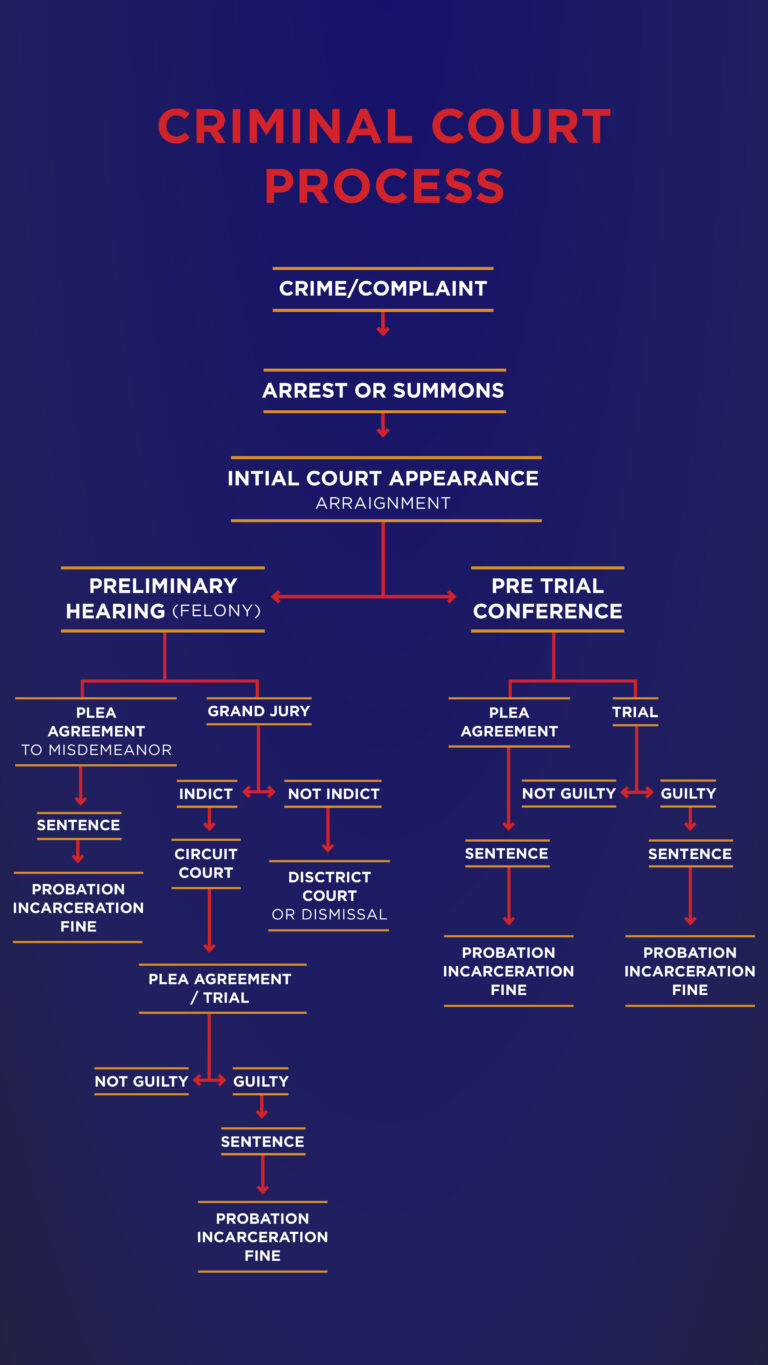General Prosecution
Our prosecutors are dedicated to pursuing justice with integrity. Accountability that ensures the public’s safety, while protecting the rights of defendants and victims alike, is our goal for every case.
All criminal cases begin in District Court. Our team prosecutes approximately 80,000 cases a year in Fayette District Court, in addition to conducting preliminary hearings on felony cases that are not appropriate to be amended to misdemeanor charges. These charges may include:
- Murder
- Assault
- Rape and sexual offenses
- Burglary
- Domestic violence
- Drug trafficking and possession
- Robbery
- Shoplifting
- DUI’s
- Theft and Receiving stolen property
Misdemeanor offenses are punishable by up to 12 months in jail and/or up to a $500 fine, or a combination of both.
Felony preliminary hearings are conducted in District Court. Our team presents evidence to the court with the intention to establish probable cause that the individual accused committed the alleged offense. A preliminary hearing does not require the same high burden of proof required in a trial. Therefore, if the judge determines there is sufficient evidence for the individual to remain charged with the offenses, the case will be forwarded to the Fayette County Grand Jury, which is overseen by the Commonwealth Attorney’s Office in Circuit Court.

FAQs
Nation-wide the majority of criminal cases are resolved through plea agreements. Numerous factors are considered with determining whether to offer a plea agreement, including the seriousness of the allegations, the likelihood of success at a trial, strength of evidence, credibility of witnesses, public safety, rehabilitation and deterrence.
Pursuant to the Kentucky Rules of Professional Conduct for attorneys, a prosecutor is to seek justice, and this is often achieved by a guilty plea. Practically, there are not enough judges or other court staff to hold a jury trial for the thousands of cases prosecuted each year in Fayette County.
In each case, prosecutors weigh the circumstances and evidence available to determine how to proceed to obtain a just result. In some cases, a dismissal is justice. There are many reasons why prosecutors may decide or be compelled to dismiss a charge. Some of those reasons include:
- A lack of sufficient evidence
- Uncooperative victims or witnesses
- New evidence, such as crime lab results or a new witness, that calls the defendant’s guilt into question
- Inconsistencies in statements by victims or witnesses
- A victim or witness who cannot be located or is no longer credible at the time of trial
- A change in the law

